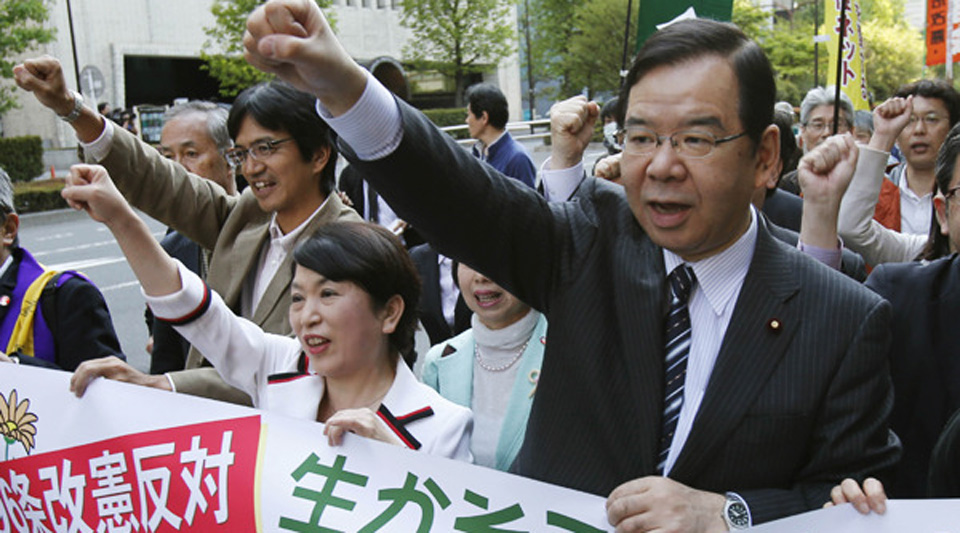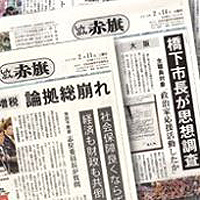
TOKYO – At the September 28 plenary session of the House of Councillors (upper chamber of the Japanese Diet, or parliament), Japanese Communist Party Vice Chair Ichida Tadayoshi took the rostrum to press Prime Minister Shinzo Abe to give up on pushing ahead his promotion of the Trans-Pacific Partnership (TPP) free trade pact.
Ichida demanded that the Abe government reverse its attempt to bulldoze through the approval of the TPP and related bills by reflecting on the failure of a similar attempt in the last Diet session. Ichida said that the reason for that failure is that the government lied about the TPP talks. The government insisted that it carried out Diet resolutions which require exempting five key agricultural food categories from the TPP talks while promising to abolish tariffs on 30 percent of items in the five-key food categories as well as on 82 percent of imported agricultural products.
Ichida emphasized the need to disclose all information regarding the TPP negotiations in order to have informed Diet deliberations on the TPP issue. Ichida went on to say, “However, in the last ordinary Diet session, what the government did was to provide documents with titles but with the text blacked out and to allow the Cabinet minister in charge of the TPP, Amari Akira, to resign from his post without fulfilling his accountability in the TPP negotiations he participated in.”
Ichida urged Prime Minister Abe to make public all the necessary information and instruct Amari to give a detailed explanation about the free-trade talks.
Ichida pointed out that the TPP goes against Diet resolutions. He also said that it aims to prioritize the interests of multinational corporations in Japan and the U.S. over Japan’s food safety as well as eliminate tariff barriers in all fields, including medical, employment, insurance, and public procurement. He also argued that the TPP will undermine Japan’s economic and food sovereignty as shown in Investor-State Dispute (ISD) settlement provisions which enable multinational businesses to influence and interfere in government policies at the national and local levels.
“This led to the loss of seats of the Liberal Democratic Party in the July Upper House election in the Tohoku region which will be heavily affected by the TPP,” Ichida said.
The JCP vice chair noted that people in Japan as well as in other TPP member nations such as America, Australia, and New Zealand have raised their voices against the TPP as it will destroy domestic economies and jobs. Ichida criticized Prime Minister Abe for trying to move ahead with ratifying the TPP in defiance of public opposition, which is growing nationally and internationally. Ichida also criticized Abe for being loyal to Japanese and U.S. corporations by sacrificing Japan’s food sovereignty and domestic economy.
Refuting Ichida, PM Abe said that under the TPP framework, Japanese farmers and small businesses will make inroads into other countries and that the TPP agreement will pose no threat to Japan’s universal health insurance system and food safety. He also said that unlike the JCP vice chair’s criticism, Japan can secure its economic and food sovereignty even under the TPP.
This article originally appeared in the Akahata newspaper. It is featured here courtesy of Japan Press Weekly.










